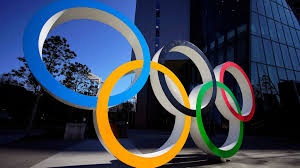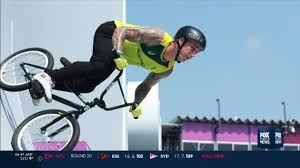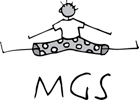The Olympic games are upon us again and what a convenient time for us all to be locked down and forced to watch the world’s best athletes compete on the grandest stage of them all. Seeing the best of the best come together every four years (or 5 in the case of Tokyo) makes us appreciate the perfect timelines that these athletes must follow in order to stay injury free, whilst peaking at just the right time. Furthermore, we also must appreciate that the Olympics is the ultimate pressure test, where the human body is pushed to the extreme. With these extremes, injuries are unfortunately commonplace.
Injuries at an Olympic Scale
 Injury statistics taken from the London 2012 Olympics showed that 11% of the more than 10,000 athletes suffered an injury, with a slight drop in figures at the Rio 2016 games. While nearly a third of London competitors were sidelined for as little as a day, 18% experienced injuries that were expected to take longer than a month to heal. These injuries ranged from fractures and dislocations, to muscle strains, tendon ruptures, ligament and knee sprains. It was also noted that the most common mechanism for injury was overuse, at 25% of all injuries reported. This has unfortunately been the case for Olympians dating back to the times of ancient Greece.
Injury statistics taken from the London 2012 Olympics showed that 11% of the more than 10,000 athletes suffered an injury, with a slight drop in figures at the Rio 2016 games. While nearly a third of London competitors were sidelined for as little as a day, 18% experienced injuries that were expected to take longer than a month to heal. These injuries ranged from fractures and dislocations, to muscle strains, tendon ruptures, ligament and knee sprains. It was also noted that the most common mechanism for injury was overuse, at 25% of all injuries reported. This has unfortunately been the case for Olympians dating back to the times of ancient Greece.
Balancing workload with recovery
When athletes at all levels push longer and harder towards peak performance, they often fail to allow adequate time for recovery between exercise bouts – and the impact is both physical and psychological in nature and known as the “overtraining syndrome” or more commonly, burnout. Symptoms include fatigue, reduced appetite or weight loss, irritability, persistent muscle pain, decline in performance and of course, injury.
Adequate rest and recovery are critical. Converse to common assumption, an aggressive return to training can increase risk for further injury, reduce motivation, and create a negative mindset towards confidence in one’s body if injury does indeed occur.
 How, and when, to return to sports/training
How, and when, to return to sports/training
As a rule of thumb, returning to sport/training before the body has had time to adequately heal will only prolong recovery time, diminish performance, and potentially lead to far more serious injuries. Professional athletes generally manage their recovery well and this is usually down to a robust understanding of the needs of their body, coupled with a strong management team such as coach, physiotherapist, trainer, and family. Unfortunately, us weekend warriors do not typically have access to the same management team and thus it comes down to self-education and an appropriate rehab management program.
At the end of the day, the needs of the human body are the same regardless of whether you are an Olympian or a weekend warrior and are only managed by a deeper understanding of your functional capacity at that point in time. With proper care and assistance, minor injuries heal with minimal long-term impact, getting any athlete back on the field. Utilising a physiotherapist is typically the best starting point so be sure to contact us if you need any assistance with your injury
